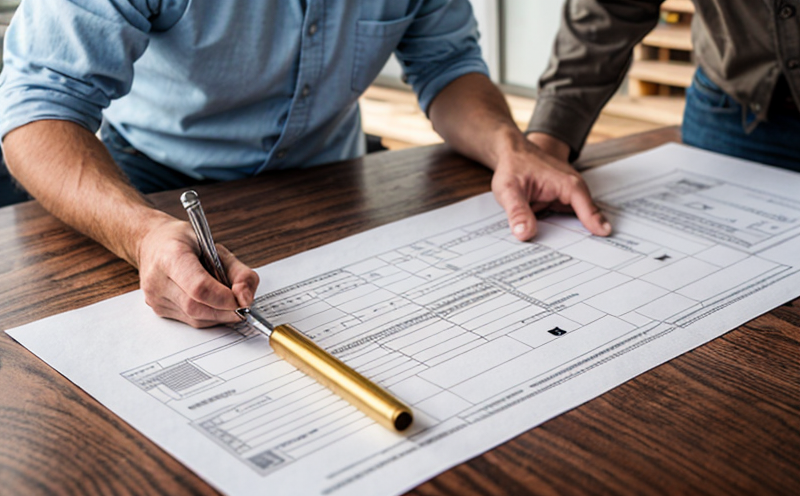Construction Permit and Licensing Requirements: A Comprehensive Guide
The construction industry is a multi-billion-dollar market that employs millions of people worldwide. However, the process of building or renovating a structure requires strict adherence to regulations and laws that govern construction activities. One of the most critical aspects of this process is obtaining necessary permits and licenses from local authorities. In this article, we will delve into the world of construction permit and licensing requirements, exploring the various types of permits, licensing requirements, and other essential details.
What are Construction Permits?
A construction permit is a document issued by local building authorities that allows a property owner or contractor to start construction activities on their site. The purpose of this permit is to ensure compliance with relevant building codes, zoning regulations, and other laws governing construction in the area. Without a valid permit, any construction activity can be halted or even result in fines and penalties.
Types of Construction Permits
There are several types of construction permits that may be required depending on the scope and nature of the project:
Building Permit: This permit is typically required for new constructions, renovations, or additions to existing buildings. It ensures compliance with building codes, zoning regulations, and other local laws.
Zoning Permit: This permit verifies that the proposed construction activity complies with local zoning regulations, ensuring that the structure does not exceed height limits, setbacks, or lot coverage requirements.
Electrical Permit: As its name suggests, this permit governs electrical work on the site, including installation of new electrical systems, repairs, and upgrades.
Plumbing Permit: Similar to electrical permits, plumbing permits regulate water supply and drainage systems on the construction site.
Licensing Requirements
While construction permits are crucial for starting a project, licensing requirements ensure that contractors possess the necessary qualifications and expertise to perform the work safely and efficiently. Some common licenses required in the construction industry include:
General Contractor License: This license allows contractors to undertake various types of projects, including residential, commercial, or industrial constructions.
Specialty Contractor License: Depending on the type of project, specialty contractors may require a separate license, such as electrical, plumbing, or HVAC licenses.
Additional Requirements
In addition to construction permits and licenses, property owners or contractors must comply with other regulations, including:
Environmental Permits: Projects that involve environmental hazards, such as contaminated soil or hazardous materials, may require additional permits.
Neighborhood Approval: Some projects may need approval from nearby residents or local homeowners associations.
Detailed Information on Permit and Licensing Requirements
Here are some detailed explanations of permit and licensing requirements in bullet point format:
Construction Permits: Key Considerations
Submission Requirements: Property owners or contractors must submit plans, specifications, and other relevant documents to the building authority.
Fees and Charges: Fees for construction permits vary depending on the project scope, location, and type of permit required.
Inspections and Compliance: Building authorities conduct regular inspections to ensure compliance with regulations. Failure to comply can result in fines or even cessation of work.
Licensing Requirements: Key Considerations
Qualifications and Experience: Contractors must demonstrate relevant qualifications and experience to obtain licenses.
Continuing Education: Many jurisdictions require licensed contractors to complete continuing education courses to stay updated with industry developments and regulations.
Insurance and Bonding: Contractors may be required to carry liability insurance or bonds to protect property owners from potential losses.
QA Section
Below are some frequently asked questions about construction permits and licensing requirements:
Q: What is the purpose of a construction permit?
A: A construction permit ensures compliance with building codes, zoning regulations, and other laws governing construction in the area. It allows property owners or contractors to start construction activities on their site.
Q: How long does it take to obtain a construction permit?
A: The time required to obtain a construction permit varies depending on the jurisdiction and complexity of the project. In some cases, permits can be issued within a few days, while others may take several weeks or even months.
Q: Can I start construction without a valid permit?
A: No, starting construction without a valid permit is illegal and can result in fines, penalties, or even cessation of work. Always ensure that you have the necessary permits before commencing any construction activity.
Q: What are the consequences of non-compliance with licensing requirements?
A: Non-compliance with licensing requirements can lead to fines, penalties, or even revocation of licenses. In severe cases, contractors may be held liable for damages or losses incurred by property owners due to substandard workmanship.
Q: How do I determine which permits and licenses are required for my project?
A: Consult local building authorities, contractors, or industry experts to determine the necessary permits and licenses for your specific project. Research relevant laws, regulations, and codes governing construction in your area.
By understanding the complexities of construction permit and licensing requirements, property owners and contractors can ensure compliance with regulations, avoid potential pitfalls, and deliver high-quality projects that meet local standards.

































